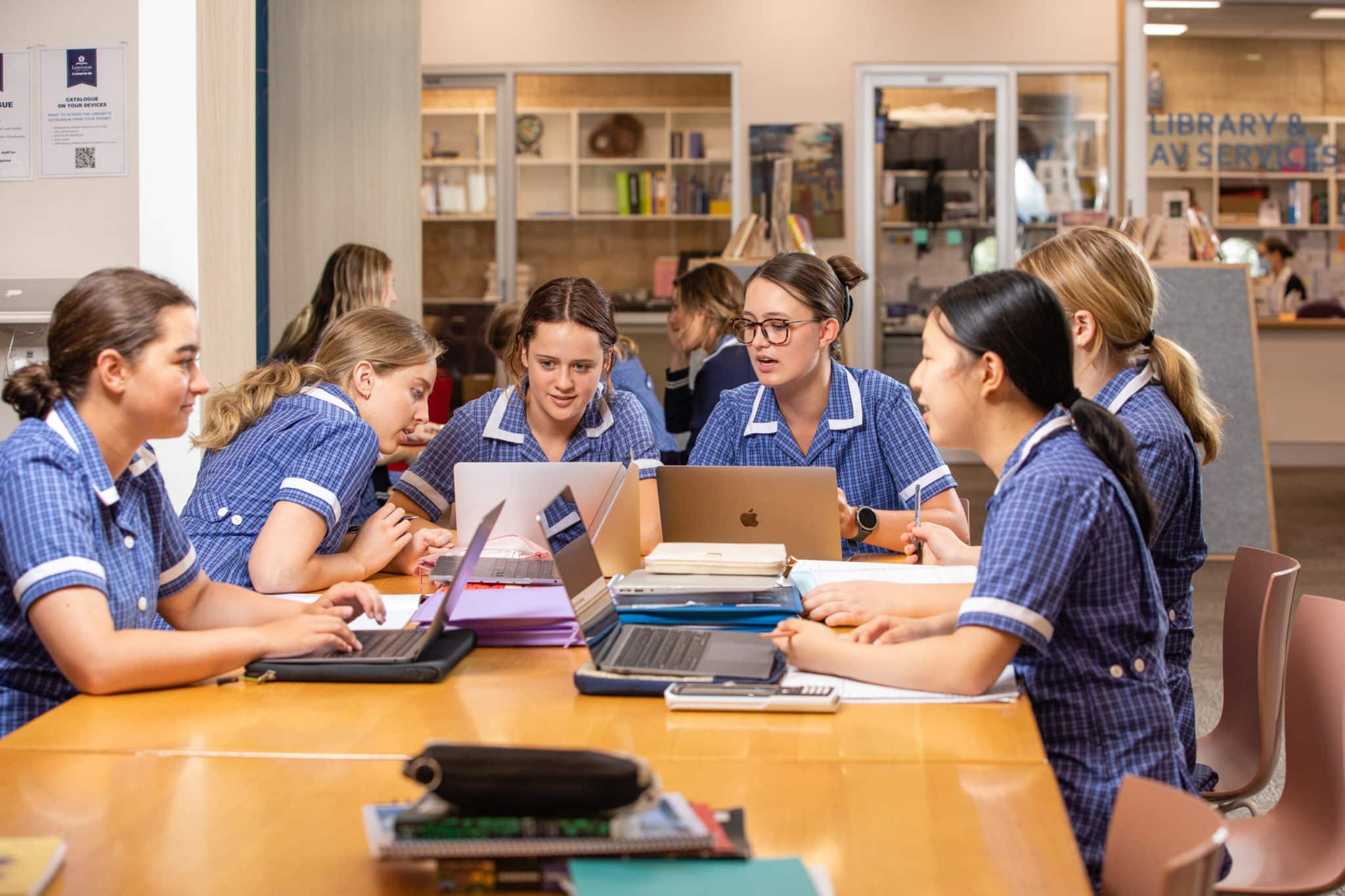Instilling international mindedness
In The Age (Saturday 11 February 2023), Sarah Marinos writes, how the International Baccalaureate brings the wider world into the classroom and encourages young minds to develop a sense of global responsibility.
From Harare to Paris, Ho Chi Minh City to New York, more than 5000 schools are part of the International Baccalaureate (IB) World Schools initiative. The aim of this global community is simple – to develop well-rounded, caring, knowledgeable and self-motivated students.
Some leading schools in Australia also offer the IB, which has been designed for students from age three right through to years 11 and 12.
Wesley College introduced the IB in 1993. Since then, 3201 students have studied the IB. This year, more than 140 students at the school have chosen the IB pathway, says Kim Bence, head of St Kilda Campus.
Wesley College offers the IB Primary Years Programme for three-year-olds to year 6, the Middle Years Programme for years 7 to 10, and the Diploma Programme in years 11 and 12.
A core strength of the IB and a key reason why Wesley College began offering the program 30 years ago, is its focus on personal development, academic achievement and fostering a deep understanding of different global perspectives.
“International mindedness is a hallmark of the IB,” says Bence.
“Students explore issues and ideas at a local, national, and global level and it brings a greater understanding and appreciation of different ways of simply being and living. The IB is a global lens through which students examine ideas and issues, draw connections and apply what they learn across subject areas in a way that is creative and innovative.”

Illustrating the global but tangible nature of the IB, a group of year 11 IB design technology students have explored ways to help rehabilitate marine ecosystems as part of a Reef Design Project. Working with Alex Goad, Wesley alumnus and founder of the Reef Design Lab, students undertake primary research and collect data at Melbourne Aquarium, St Kilda beach and the Reef Design Lab.
“The project brings together disciplines including biology, geography, mathematics and design and students learn about oceans, waterways and the threats impacting our ecosystems,” says Bence.
Outdoor education students in the IB are learning about changing climate conditions and the impacts on the environment during trips to the school’s outdoor education site in East Gippsland. Year 6 students recently built and installed nest boxes to support animal life affected by the destruction of natural habitats.
“Humanity is facing complex problems,” says Bence. “The IB builds an understanding of these many complexities and harnesses students’ abilities to develop the skillsets and confidence they need to undertake their own research, make their own informed decisions, and become thoughtful and contributing citizens of the world.”
At Lauriston Girls’ School in Armadale, about a third of students in years 11 and 12 choose to study the IB Diploma Programme. Part of their studies include choosing a topic to investigate, developing a powerful question related to that topic, and researching their area of interest.
Students then write a comprehensive 4000-word essay outlining their research and findings with each essay question reflecting the important international focus of the IB.
“One student explored the economic development driven by internal migration from Anhui province in China to Shanghai and back,” says Lauriston Girls’ School principal Susan Just.
“Another student researched cultural determinants influencing behavioural economics. Her essay research question looked at to what extent the psychology behind the blind box market presents a challenge to the conventional thinking of the market economy.”
In China, blind box marketing is increasingly popular and involves consumers buying a package from a favourite brand. While consumers know the brand, they don’t know what products will actually be contained in the box they buy.
“The IB develops international mindedness in three ways – through encouraging intercultural understanding, global engagement and multilingualism,” says Just. Studying a second language is a compulsory element of the IB.
The IB also features an element known as CAS – creativity, activity, service. This provides another opportunity for students at Lauriston Girls’ School to raise their awareness and understanding of world affairs and to learn more about different cultural backgrounds.
“Through CAS we encourage girls to do community activities and some of them support a Friday night school in Richmond where they tutor young people who often come from countries impacted by political conflict. The girls develop empathy and understanding through that different cultural context.”
IB students also take part in the Model UN global education initiative that simulates the UN General Assembly. Students step into the shoes of UN ambassadors from different countries and advocate, collaborate and discuss challenging global issues.
“As students’ progress through the IB they develop a clearly articulated opinion about world issues,” says Just. “They are very aware and attuned to what is happening around the world and they have empathy and understanding.”
SHARE THIS ON

